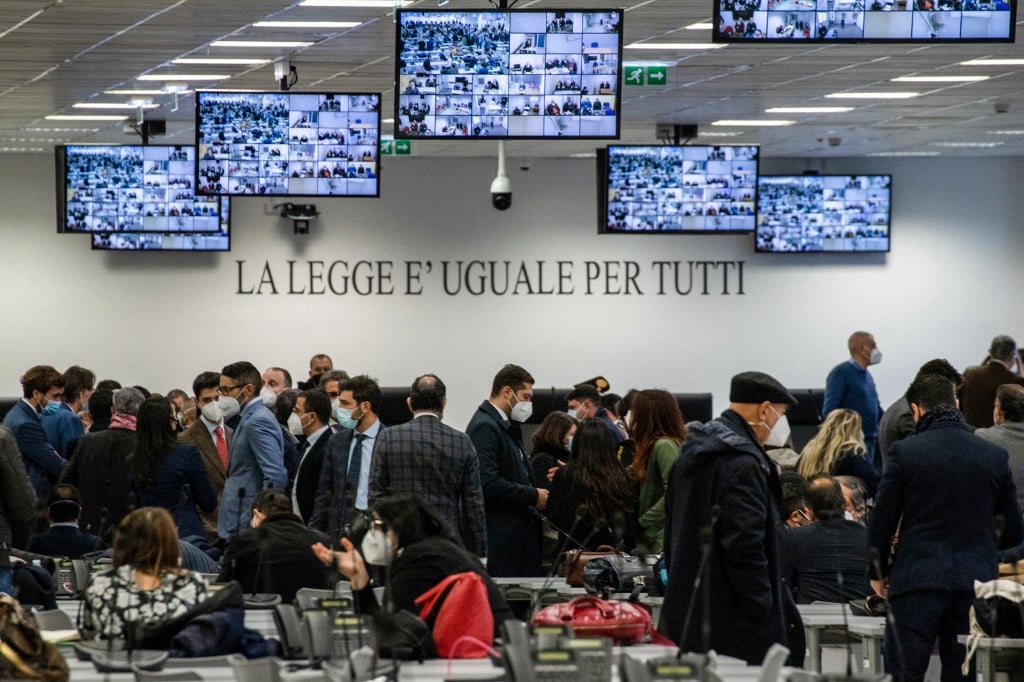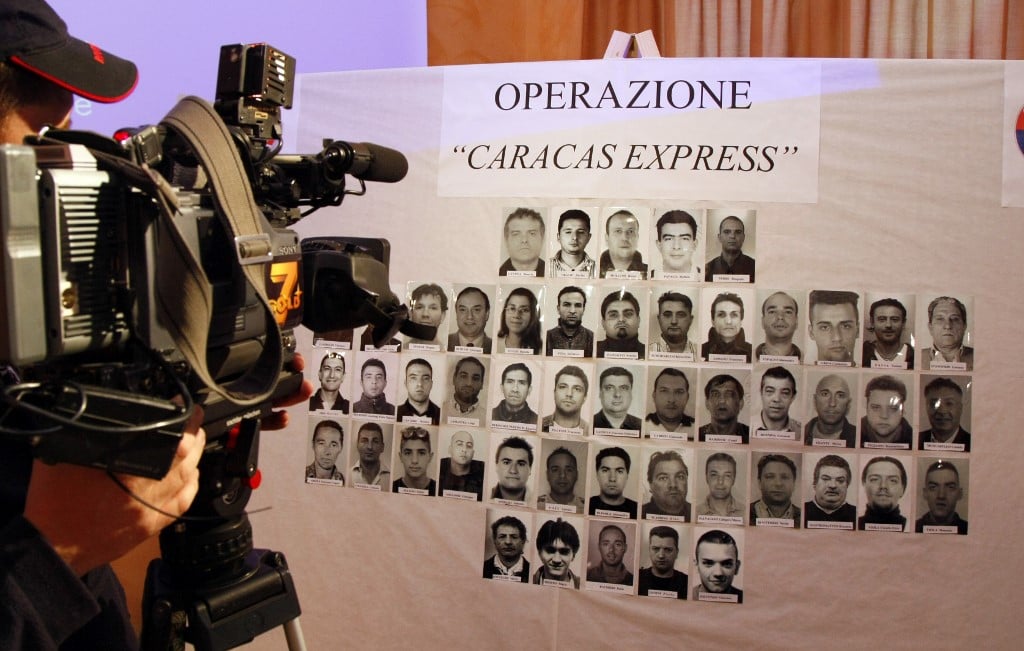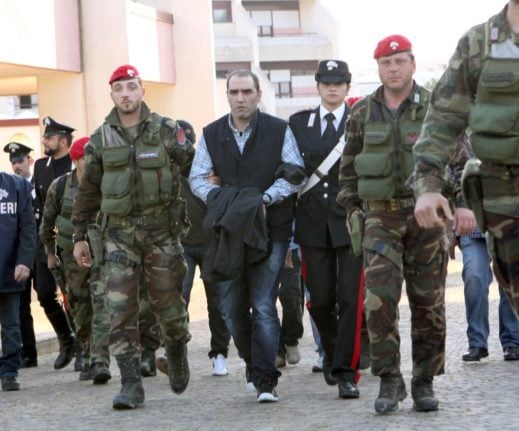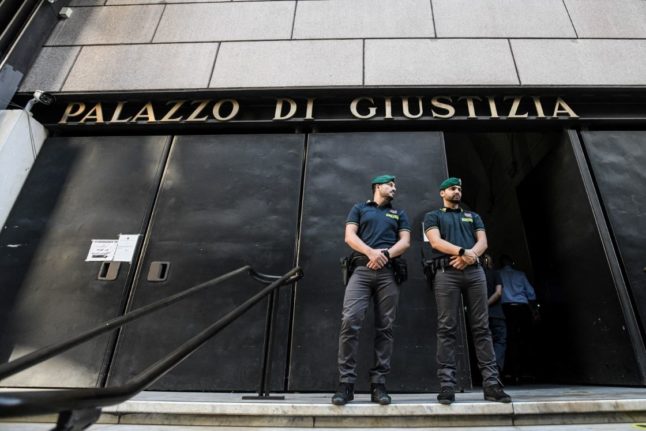When the mafia is mentioned, many people outside Italy will immediately think of Sicily’s notorious Cosa Nostra.
But Italy in fact has five major mafias, and in recent years other groups have become increasingly powerful – across Italy and beyond.
READ ALSO: ‘Ndrangheta: Italy kicks off mafia ‘maxi-trial’ with 355 defendants
The ‘Ndrangheta, rooted in the southern region of Calabria, has surpassed the more famous Cosa Nostra to become Italy’s most powerful mafia group, operating across the world.
The ‘maxi-trial’ now taking place in the groups heartland in Calabria, which has more than 350 defendants, concerns just one ‘clan’ or crime family within the wider ‘Ndrangheta organisation.

Inside the specially-designed courtroom in Calabria as the maxi-trial began on January 11, 2021. Photo: Gianluca Chininea/AFP
Origins
Criminologist Anna Sergi, of the University of Essex in England, says the group’s name has Greek origins – the word “andranghateia” refers to a “feat
of bravery”, and “andrangatho” means “to do military actions”.
The group has only been classed as mafia under Italian law since 2010, but it dates back at least to the unification of Italy in 1861.
It came to public prominence in the 1980s and 1990s in a series of kidnappings across Italy, and affiliates are believed to have been responsible for kidnapping oil tycoon John Paul Getty’s grandson.
Main activities
Judge Roberto Di Bella, who has almost 30 years of experience in the methods of the Calabrian mob, describes the ‘Ndrangheta as “perhaps the most
powerful criminal organisation in the world, but certainly the most diffuse, and present on five continents”.
Its activities have expanded well beyond those typical of organised crime groups – drug trafficking, extortion, illegal waste trafficking and money
laundering – to infiltrate practically all areas of public life in Calabria, while using shell companies to invest in the legitimate economy worldwide.
- Meet Nicola Gratteri, the prosecutor leading Italy’s battle against the mafia
- ‘Free to choose’: The scheme helping women and children leave Italy’s mafia clans
- ‘Ndrangheta: It’s time to bust some myths about the Calabrian mafia
But what makes the ‘Ndrangheta different from other mafia groups is its family structure – it is based on blood ties, rather than external recruitment based on merit, which makes it “very reliable, because there are few turncoats”, Di Bella told AFP.
This is one of the reasons why Colombian or Mexican drugs producers have used the ‘Ndrangheta to sell in Europe.
“The enormous flow of money that comes from drugs allows the ‘Ndrangheta to buy everything – businesses, restaurants – to pollute the economy not just
of Italy but of many other countries in the world,” he said.

Police in Milan display photos of suspected cocaine traffickers, some with links to the ‘Ndrangheta mafia, in 2009. File photo: AFP
“I have to start with the idea that there’s an organisation, as in a business, as in a large multinational, with a boss and then down, like a pyramid, to all the other members,” Gratteri told AFP, explaining the need for the “maxi-trial”.
How much is it worth?
The ‘Ndrangheta’s true make-up and wealth are difficult to establish but authorities believe there are some 150 ‘Ndrangheta families in Calabria and at least 6,000 members and affiliates in the region, with thousands more worldwide.
Gratteri estimates the group generates an annual turnover of more than 50 billion euros ($61 billion) – much of it from cocaine trafficking.



 Please whitelist us to continue reading.
Please whitelist us to continue reading.
Member comments